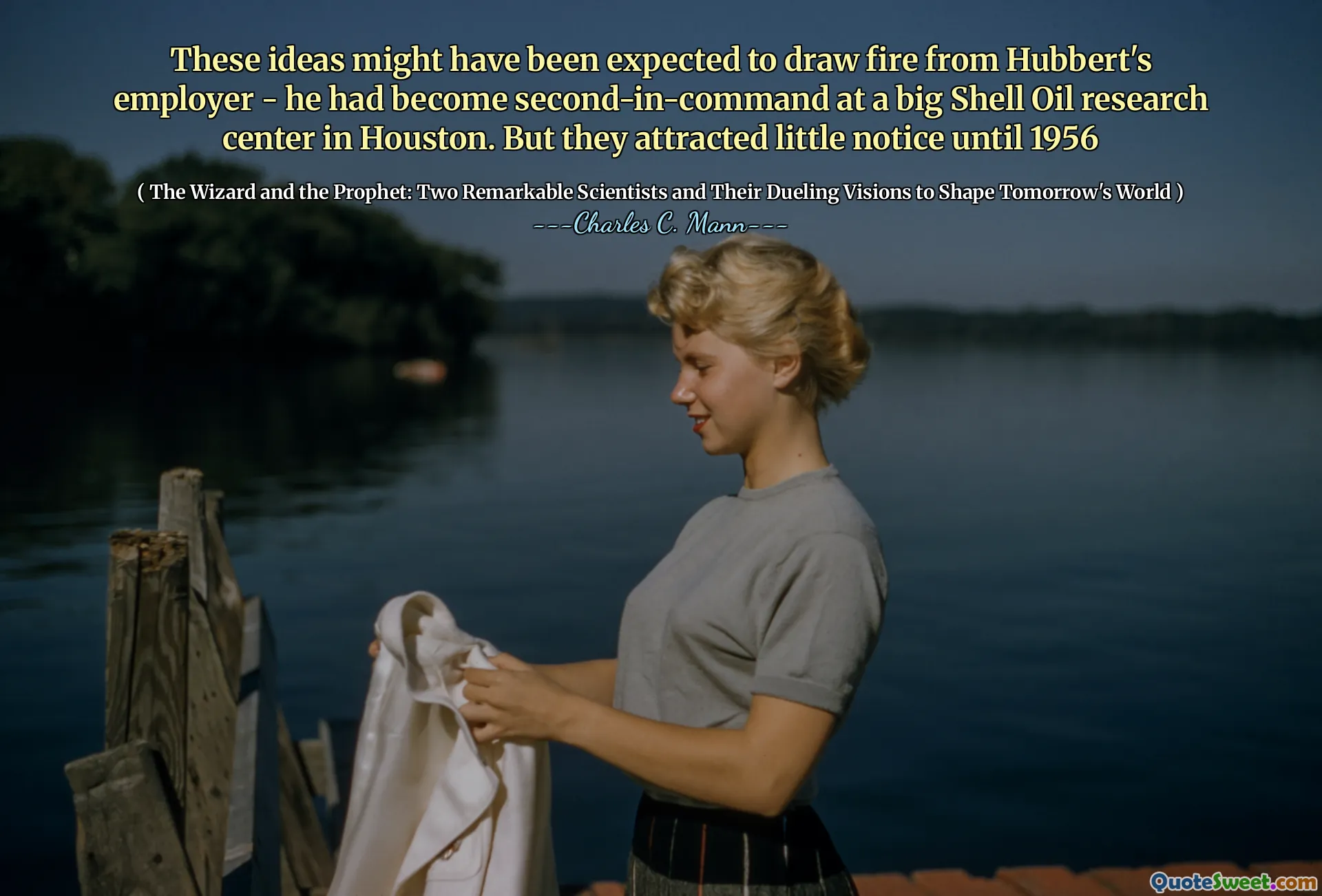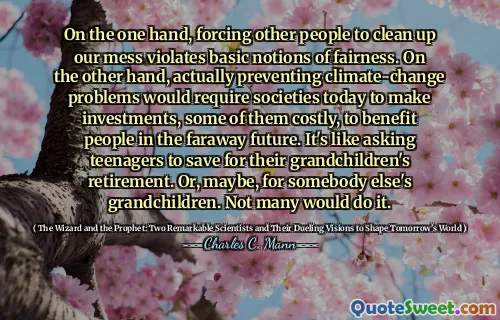
These ideas might have been expected to draw fire from Hubbert's employer - he had become second-in-command at a big Shell Oil research center in Houston. But they attracted little notice until 1956
📖 Charles C. Mann
This quote reflects on the unexpected reception of groundbreaking ideas in a corporate context, specifically within the oil industry. Hubbert, holding a significant leadership role within Shell Oil's research center, proposed ideas that one might presume would be met with resistance, given the conservative nature often associated with large corporations and the potential threat such ideas posed to their established business interests. However, the observation that these ideas drew little notice until several years later suggests a general reluctance or unpreparedness to confront or acknowledge disruptive concepts at the time. It also hints at the sometimes slow pace of institutional change, where innovative thoughts must wait for the right moment or conditions to gain traction. This dynamic highlights the tension between innovation and tradition—how pioneering ideas frequently challenge existing norms, but may initially be overlooked or dismissed even when coming from within the organization's own ranks. In the broader context of "The Wizard and the Prophet," this moment can be seen as emblematic of the struggles faced by visionaries who attempt to shift paradigms in environmental and resource management discussions. It raises critical considerations about how society and corporations react to foresight and warnings about resource limitations, and the role that timing and communication play in influencing policy and public perception. Ultimately, it is a reminder of the complexities involved in fostering change and the importance of persistence by those who advance transformative ideas.







